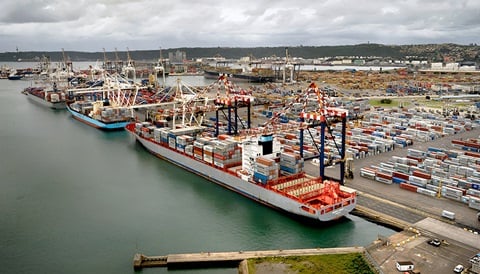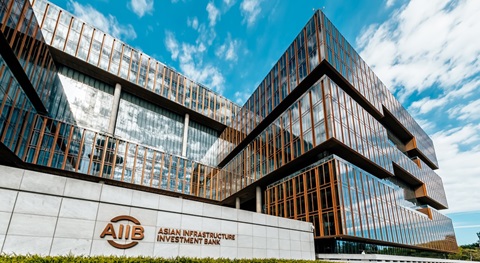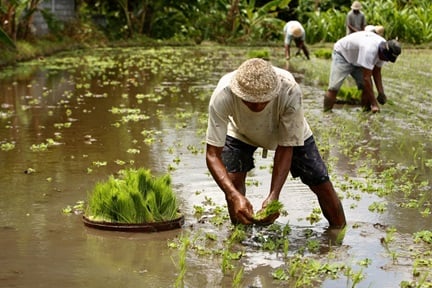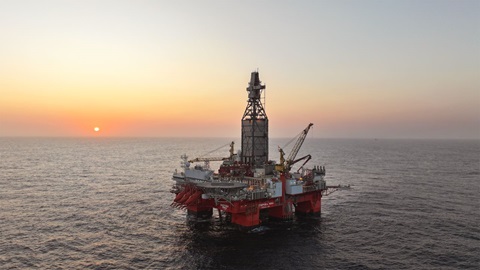Funding winter in Africa continues to worsen
After another quarter of decline, the level of funding raised by African start-ups is now at a three-year low
By Max Cuvellier Giacomelli

Funding raised by start-ups in Africa continues to decline, registering its third quarter of QoQ negative growth in a row. In Q3 2023, start-ups in Africa raised an estimated US$324 million in equity funding compared to US$412m in Q2 (-21% QoQ) and US$620m in Q1, making Q3 2023 the worst quarter in terms of equity funding raised since late 2020. This is also reflected in the number of US1m+ equity deals which reached 42 in Q3, a slight improvement over Q2 (40), but nearly three times less than what it was at the height of the ‘funding heatwave’ in Q1 2022 (125 US$1m+ deals; US$1.7b in equity raised). If we add debt transactions, the amount of funding raised by start-ups in Africa in Q3 reaches half a billion dollars, to be compared to US$919m in Q2 (-45% QoQ). From this point of view, Q3 2023 is also the worst quarter since late 2020. There were no notable exits announced in Q3 2023; neither was there a single ‘mega deal’ (over US$100m) advertised, a first since mid-2020.
The largest deal (equity+debt) announced in Q3 2023 was Benin-based electric motorbike manufacturer and clean energy provider Spiro’s US$63 million announcement. Wetility – an energy start-up based in South Africa – announced two rounds of debt financing in September (more details here and here), for a total of US$48 million. After raising US$8 million in July, Nigerian mobility start-up moove announced a new round of funding in August, taking the total raised over the quarter to US$46 million (equity+debt). In terms of equity funding raised, Fintech attracted a third of the overall amount raised on the continent, followed by Energy and Logistics & Transportation. The US$106 million in equity raised by fintech start-ups in Africa in Q3 2023 is the sector’s worst performance in absolute terms since late 2020.
Geographically, the ‘Big Four’ continued to attract the majority of the equity funding on the continent, though their collective share (71%) was lower than the average of the past three years (79%). Among the Big Four, Nigeria was the country that claimed most of the equity funding in Q3 2023 (US$115m, 35%) with a quarterly decline (-16% QoQ) lower than average. Moove contributed to this relatively good performance, as well as fintech Lemfi who closed a USD33m round in August. Kenya came second with US$55 million of equity funding raised during the period, representing a 49% drop QoQ. After two decent quarters, South Africa only claimed US$43m in Q3 (-70% QoQ). The poorest Big Four performance came from Egypt who for the second consecutive quarter attracted less than US$20m in equity funding (US$6m in Q2 and US$17 in Q3), which means that two non-Big Four markets actually outperformed Egypt last quarter: DRC (US$40m, almost entirely driven by Nuru’s Series B) and Rwanda (entirely attributable to Kasha’s US$21m Series B). If we look at the equity funding raised by start-ups in Africa since the beginning of Q3 (January to September), the picture is rather balanced between South Africa (US$342m, 25%), Egypt (US$332m, 24%) and Nigeria (US$303m, 22%), with only Kenya trailing behind (US$197m, 15%). The remaining 50 African markets claimed US$171m (13%) over the same period.
In this otherwise gloomy context, the analysis of equity funding raised based on the gender of the CEO brings some positive news. Indeed, the percentage of funding raised by female CEOs reached 19% in Q3 2023, its second highest level since 2019, the only exception being Q1 2021 when in January Gro Intelligence – and their CEO Sara Menker – announced a funding round of US$85m, which remains to this day the highest amount ever raised by a start-up with a female CEO in Africa. Encouragingly, not only is the percentage of funding raised by female CEOs in Q3 relatively high, it also marks the fourth consecutive quarter of growth (from 4% in Q4 2022 to 7% in Q1 2023, 12% in Q2 and now 19% in Q3). While the absolute number (US$61m in Q3) remains low, the trend is certainly positive. The two largest contributors to this number were healhtech platform start-ups Kasha (Rwanda, US$21m) and myDawa (Kenya, US$20m). On the negative side however, start-ups without at least a male (co-)founder(s) continued to raise a very small portion of the overall equity funding in Q3 2023: 1.8% (US$6m out of US$324m).

What could this mean for 2023 overall? So far this year start-ups in Africa have raised US$1.4b, just over a third of what they raised in the whole of 2022 (US$3.9b). Based on historical data and current trends – and unless ‘mega deals’ make a comeback, which is hard to predict – the total level of equity funding raised in 2023 will probably range between US$1.6b and US$1.8b. In both the optimistic and pessimistic scenarios, it would translate in more than a 50% YoY drop. Looking at equity + debt, the picture is slightly less dramatic, though the trend is comparable. The 2023 total to date stands at US$2.3b, to be compared to a full 2022 amount of US$4.6b, therefore half. Our projections estimate that the 2023 total might reach US$2.8b to US$3.1bn, which in both scenarios would mean at least a US$1.5bn shortfall compared to 2022 and 2021.
Find out more about start-up funding in Africa at Africa: The Big Deal, a project by Max Cuvellier Giacomelli and Maxime Bayen.







